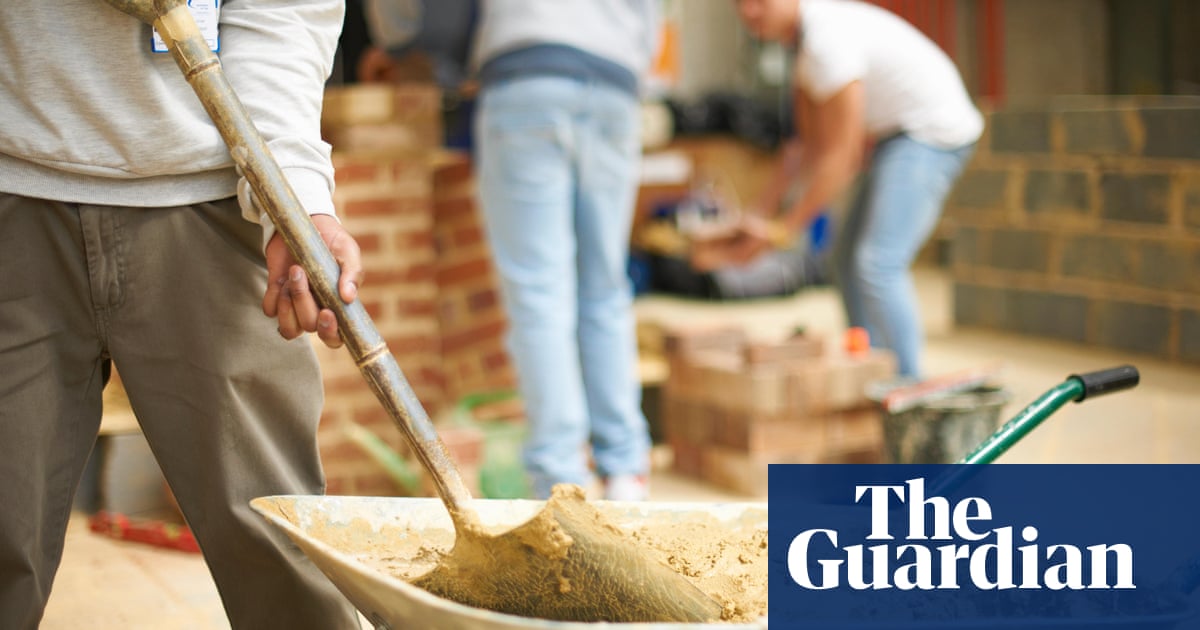
s the government extends the coronavirus wage subsidy furloughing scheme until the end of October, the manufacturing and construction workers who have stayed home throughout the lockdown are under increasing pressure to return.
Physical distancing is impossible to observe in many of these workplaces, and the government stands accused of treating manual workers like “plebs” as the right to stay home after Wednesday’s easing of lockdown measures in England increasingly becomes a luxury enjoyed by professionals.
In the absence of mass testing, people including 56-year-old bricklayer Paul Crimmins, in north London, have arrived at the conclusion that he and his colleagues are being treated as if they are expendable.
“It’s so annoying, it feels like they are sending the plebs back first to see what happens and that we’re expendable,” he said. “I got a phone call saying ‘can you go back’ last Monday. I wasn’t happy about it at all, we weren’t two metres apart, it’s impossible.”
Marek Kowalski, a 38-year-old construction worker who is also in the capital and must take public transport, has pressing concerns: “I could get the virus and pass it to my wife and two kids but I don’t have a choice,” he said after returning to work on Tuesday following pressure.
“We had to sign a declaration at work saying that it’s our will to either come back to work, use our paid holiday time, or not to come back and not get paid.”
Chemist Samuel Keita, in Oxfordshire, said his employer has been “bombarding” him to come back into work even after he took unpaid leave – after furloughing negotiations broke down – to help shield his son, who has a chronic illness.
“I have told them there is no way I can go back right now,” he said, fearing he could infect his son. “I said when everything has eased out, from July maybe, I will go back to work.”
Millions, however, are believed to have continued going to workplaces throughout the lockdown – many in the industries which Boris Johnson implied had come to a halt when he “actively encouraged” workers to return to sites on Wednesday.
Complaints about working conditions in warehouses containing hundreds of workers preparing food and online clothes orders across the UK have sparked walkouts due to fears of a lack of protective equipment and inadequate distancing measures.
In Rochdale, Chris Drinkwater – who is in his 20s – has worked full-time at a sportswear outlet’s warehouse throughout the last three months as shopping has moved increasingly online.
“The working conditions have not been safe,” he said. “It’s physically impossible to have a two-metre rule in a warehouse, though they have put signs up. There’s nothing we can do, it’s like dancing with the devil.”
Of Johnson’s announcement on Sunday, he said: “Nothing has changed for me. I’ve just been going in as normal. They’ve put profit before people’s health. No one can afford to take unpaid leave.”
In Sheffield, mechanical engineer Jason Kelly said his company has not issued any staff communications since 20 March and that work had also continued as usual as the virus spread across the country.
Of about 100 employees, he claimed, six have been furloughed – including the HR manager and the health and safety chief. “It almost impossible to maintain two metres apart, especially with the supervisor literally in your face,” he said.
“I don’t want to be going to work, it’s a risk to my family. It’s just very shoddy. They’ve kept us because they have some big orders but very little has been done to protect us. Some hand gel has been provided near a sink; it is disgusting that they have not done more for us.”
And elsewhere, with the UK recording more than 600 new deaths on Tuesday – many more than in other European countries which are now easing stricter lockdowns – people are equally suspicious of their employers.
“In the communications we get, there seems to be a belief that we’re all dying to get back to work,” said salesman Ashley Cummings in London. “But we are all worried and are scared to speak up.”
He claimed that his shop, part of a chain of furniture stores, had been planning to open in contravention of the lockdown rules and was requiring staff to travel in to prepare.
“They have actively been planning to open some stores. They believe we’re an essential retailer, and why should we not be open?”
In Oxfordshire, 40-year-old civil engineer Pablo Gutiérrez has been ordered to return to work in cramped offices this week even though he can work from home.
“They told me yesterday [Monday] after the announcement on Sunday,” he said. “It’s crazy, we do not have to come into the office to do our work, but they have required the junior staff to go in throughout the lockdown.
“It feels like tradition, an outdated mentality. The office is quite tight, I don’t know how we can distance. We’re all being taken for a ride.”
The government has urged all those who it has encouraged to leave the house to “stay alert”. Over the weekend the housing and communities minister, Robert Jenrick, said people should maintain physical distancing, wash their hands and respect colleagues in the workplace.
Most names were changed.












